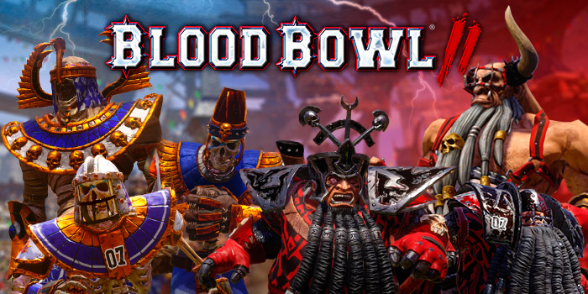Captain Blood (L'Arche du Captain Blood in France) is a French video game made by ERE Informatique (soon relabeled with their short-lived Exxos label) and released by Infogrames in 1988. It was later re-released in the UK by Players Premier Software. The game was first released on the Atari ST, and was later for the Commodore 64, Macintosh, Amiga, Apple IIGS, PC, ZX. About This Game Battle an army of sycophantic cultists, zombies, gargoyles, hellhounds, and an insatiable host of horrors in your quest to defeat the evil Tchernobog. Squirm through 42 loathesome levels filled with more atmosphere than a Lovecraftian mausoleum.
| Captain Blood | |
|---|---|
| Developer(s) | Exxos (ERE informatique) |
| Publisher(s) | Infogrames |
| Designer(s) | Philippe Ulrich Didier Bouchon |
| Programmer(s) | Sylvain Tintillier François Lionet |
| Artist(s) | Didier Bouchon Michel Rho |
| Composer(s) | Jean-Michel Jarre |
| Platform(s) | Atari ST, Amiga, Apple IIGS, IBM PC, Amstrad CPC, Commodore 64, ZX Spectrum, Thomson TO7, Macintosh |
| Release | 1988 |
| Genre(s) | Adventure |
| Mode(s) | Single-player |
Captain Blood (L'Arche du Captain Blood in France) is a French video game made by ERE Informatique (soon relabeled with their short-lived Exxos label) and released by Infogrames in 1988. It was later re-released in the UK by Players Premier Software.
The game was first released on the Atari ST, and was later for the Commodore 64, Macintosh, Amiga, Apple IIGS, PC, ZX Spectrum, Amstrad CPC, and Thomson TO8 and MO6 . The ST version is the only version that includes the full set of alien language sounds.
The title tune is a stripped down version of 'Ethnicolor' by Jean-Michel Jarre.
Development[edit]

Captain Blood was developed jointly by Didier Bouchon and Philippe Ulrich, both contributing design and scenario, and Bouchon graphics and programming for the Atari ST version. Bouchon originally designed covers for ERE informatique's Gazoline Software label, but he learned to program in assembly language for the Atari ST after Ulrich provided him with an assembler. Bouchon then created fractal-generated realtime graphics that inspired both to do a sci-fi inspired video game.[1]
After ERE's absorption by Infogrames in summer of 1987 (partly justified by preliminary versions of Captain Blood), Ulrich and Bouchon isolated themselves in the Landes in order to have the game ready for Christmas. Many adaptations for both 16-bit and 8-bit machines were developed in successive months, although they were straight ports of the original Atari ST version in graphics, sound effects or music.

Story[edit]
The titular character of the game is a 1980s video game designer, Bob Morlock, who had picked 'Captain Blood' as a nickname in tribute to the film starring Errol Flynn of the same name. Morlock develops a new video game about aliens and space travel. While testing for the first time his new project, he becomes warped inside the spaceship of the very game he had designed. Soon after, Blood is forced to go into hyperspace mode and, due to an incident, gets accidentally cloned 30 times. For 800 years, Blood tracks down every clone, as each one took a portion of his vital fluid. When the game begins, Blood has successfully disintegrated 25 clones, but he needs to kill the last five clones who turned out to be the most difficult to track down or he will lose his last connection with the human species.

Gameplay[edit]

The objective of the game is to track down and disintegrate five clones (referred to as Duplicates or Numbers depending on the version of the game) of Captain Blood. To find them, the player must speak to various aliens and gain their trust. Communication with aliens occurs via an icon-based interface known as UPCOM. This consists of around 150 icons, each representing a different concept. As each alien race discovered speaks its own language and reacts differently, the player must learn to negotiate using these UPCOM concepts in a style that suits each race.
Other unique facets of the gameplay of Captain Blood included changes in the player interface as the game progressed; as time wore on, the character's health deteriorated. This was represented in-game via an increasing amount of shaking of the mouse cursor, making the game more and more difficult to control. Disintegrating a clone would temporarily relieve the symptoms.
The player starts the game at the bridge of a biological ship, the Ark. The ship begins in the vicinity of one of four predetermined planets, each inhabited by a single alien. To make contact with an alien, the player launches an OORXX—a biological probe—to the planet's surface. The player must successfully navigate the probe over a fractal landscape, eventually reaching the alien at the end of a valley. The UPCOM interface then appears so that the player may talk to the alien and find out more information—most importantly, the coordinates of other inhabited planets.
The Ark also has the capability to hyperspace to other planets, scan planets for defences, destroy planets and teleport aliens to an area known as the Fridgitorium, for disintegration or transportation to another planet. An alien can only be teleported to the Ark after it has consented to do so.
Reception[edit]
Computer Gaming World gave the game a positive review for its unusual concept, execution, and graphics.[2]Orson Scott Card praised Captain Blood's EGA graphics and science-fiction story, but wrote in Compute! that 'as a game, this one sucks pond scum', citing a poor interface and obscure game play.[3] Info magazine—January/February 1989—gave the game 5 out of 5 stars, remarking: 'Captain Blood is a marvelously alien experience. The graphics & sound are first rate. The more we played, the more we wanted to continue playing, if only to meet more aliens. There is a fully realized universe here that's easy to become completely immersed in.'
Captain Blood sold more than 100,000 copies worldwide.[4]
Legacy[edit]
Captain Blood was followed by the sequel Commander Blood in 1994 and later by Big Bug Bang in 1997, a French-only release.
References[edit]
- ^Daniel Ichbiah, La saga des jeux vidéo. Chapter 5. Vuibert. 2004. ISBN2-7117-4825-1
- ^Rohrer, Kevin C. (April 1989), 'Captain Blood', Computer Gaming World, pp. 35–36
- ^Card, Orson Scott (June 1989). 'Light-years and Lasers / Science Fiction Inside Your Computer'. Compute!. p. 29. Retrieved 11 November 2013.
- ^Maher, Jimmy (November 30, 2018). 'Controlling the Spice, Part 2: Cryo's Dune'. The Digital Antiquarian. Retrieved December 10, 2018.
External links[edit]
Blood Video Game Caleb
- Captain Blood at Hall of Light
- Captain Blood at Classic Amiga
- Captain Blood at SpectrumComputing.co.uk
- Captain Blood at the Macintosh Garden
Available Platform: DOS
Blood is a horror first-person shooter created by Monolith Productions and published by GT Interactive in 1997 for MS-DOS.
| Year | 1997 |
| Genre | Shooter |
| Rating | 83/100 based on 5 Editorial reviews. Add your vote |
| Publisher | GT Interactive |
| Developer | Monolith Productions |
| OS supported | Win7 64 bit, Win8 64bit, Windows 10, MacOS 10.6+ |
| Updated | 2 December 2020 |
Game Review
Blood is a horror first-person shooter created by Monolith Productions and published by GT Interactive in 1997 for MS-DOS. The game was designed by Nicholas Newhard, which was also the lead programmer.
“Let the blood bath begin...” may be the ultimate statement when you wake up in your own grave in the first game level called “Cradle to grave”. You – Caleb – are an old fashioned gunman from the early 20th century seeking revenge against your former master Tchernobog who betrayed you in your past life. And no: that name has nothing to do with the doomed Chernobyl. The name refers to a Slavic deity from the 12th century, which can be translated as “black god”. If you are interested in getting deeper into this topic you may study the Chronica Slavorum written by the German priest Helmold von Bosau in 1168-1169.
In the story of the game Tchernobog formed a cult called “The Cabal”. You were once a devoted member of that cult until you died, killed by the hand of your master. Now you get the chance to search and destroy that bad guy forever – and that is your objective.
The bizarreness of Blood catches you immediately as you approach your first enemy with nothing but a pitchfork. The spell of Blood begins. From the moment you start fighting with a Zombie nearby the graveyard there is no way back to daylight anymore. You can be dead sure: Blood is a dark, gory horror themed game.
Blood Video Game Machines
The game is packed with lots of references to books and films. You’ll find mentions of films like Evil Dead, Return of the Living Dead, The Shining, The Wizard of Oz or even an analogy to the Necronomicon, the famous book written by H.P. Lovecraft. Some textures of the video game maps illustrate The Three Graces by Raffael and the cultists look very similar to the robed figures in the Spanish movie Tombs of the Blind Dead.
Blood Video Game Machine
See Also: Blood Review by André Eymann
Review by: André Eymann
Published: 29 May 2015 4:32 pm